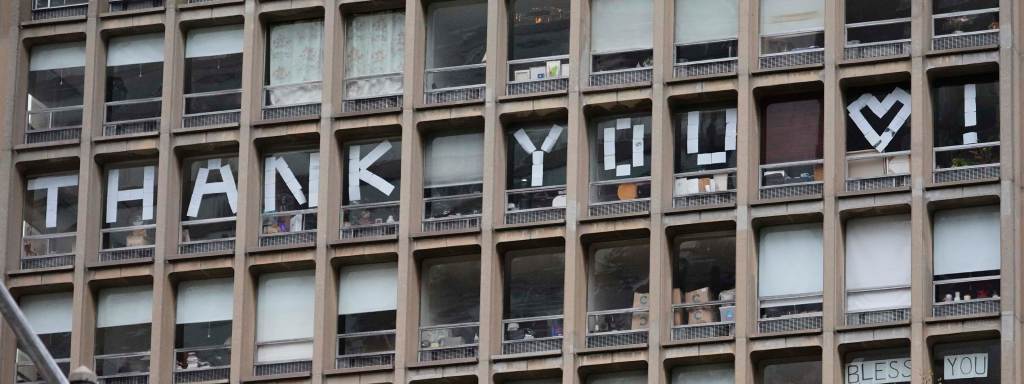
In America, New York remains the city hardest hit by COVID-19 but, as new cases begin to drop, leaders are looking towards the future and imagining what recovery—and rebuilding—might look like. Last week, New York’s Mayor Bill de Blasio announced a number of task forces with individuals across a variety of sectors to work together to think through the city’s reopening and the aftermath of coronavirus.
One of the task forces, called the Fair Recovery Task Force, will bring together civic leaders from an array of backgrounds to formulate a broad post-crisis recovery effort to build a fairer, stronger and safer New York. One of the members of that task force is Maria Torres-Springer, former city alum and our current vice president of US Programs. Maria sat down and answered a few questions on her exciting involvement in these efforts.
You have been appointed to join Mayor de Blasio’s Fair Recovery Task Force. This isn’t your first time serving the city in this capacity. Can you tell us a little bit about your history with NYC’s government?
I spent close to 15 years in city government working on issues related to economic opportunity, housing security, small business development and workforce training. They were humbling and exhausting years. I tried, however, to never forget what was at stake in every policy or program decision—the lives of individuals and families—too many of whom were struggling to make ends meet and too many of whom have been disproportionately impacted by this pandemic. I, of course, wanted to continue the fight on behalf of these communities at Ford and am grateful for the opportunity to lend my perspective to our city again during these unprecedented times.
What is the mission of the Fair Recovery Task Force? What does “fair recovery” mean to you?
The Task Force’s mission is to help New York formulate a post-crisis recovery effort that builds a stronger, safer, and fairer economy and society. My overarching goal in participating is to make sure that we bend the arc of our recovery more towards justice. We need public policy and investments that center workers and communities, protect the most vulnerable, address climate change, and spell the rebirth of a more just and equitable city for New Yorkers. To me, this means the five principles below must guide the work:
- Put people at the center: Low-income people and people of color must shape the recovery decisions that affect their lives and communities. They also must be able to hold officials accountable for truth, transparency, and results.
- Advance policies that address long-term inequities: We must confront historical inequities, understand how the pandemic has ravaged particular communities, and advance policies that address those entrenched inequities.
- Rebuild through transformative investments: We must use the crisis to solve multiple issues that for too long have been siloed and suffered from underinvestment including climate change, housing insecurity, broadband equity and economic justice.
- Resist the temptation to make false choices: Typical false choices in previous downturns have included growth versus equity; public health versus individual civil liberties; fiscal prudence versus strengthening the nonprofit sector, etc. We have to resist this temptation and instead identify strategies that achieve the right balance and bend towards fairer outcomes.
- Create community resilience for the future: We must build the capacity of organizations representing vulnerable communities to respond and withstand what will be a long road to recovery. The trusted network of nonprofit, cultural, philanthropic, and local institutions that support the well-being and resilience of the most vulnerable communities have been and will continue to be called on to do more— and we must fortify them.
What has you most excited about this role and why do you think it’s important for Ford to be represented?
More than ever, policymakers and community leaders need to make a choice about what kind of recovery to pursue. In addition to exposing historic inequities, the pandemic has also revealed our interdependence: we are only as safe as the least protected among us. I am excited for the opportunity to contribute what I can to make sure the task force centers our “least protected” and that our recovery is one that improves and sustains the well-being of all New Yorkers.
At Ford, we support organizations who have long fought for the types of policies and changes that the pandemic has made abundantly and tragically clear we need. It would be a privilege to make sure that what I have learned from here informs the discussion and decision-making around the city’s recovery.
What gives you hope for NYC?
I am a pathological optimist when it comes to New York. I saw how, in the aftermath of 9/11 and Superstorm Sandy, too many people were ready to write the city’s obituary, but I also saw the depths of the city’s resilience, embodied by the people and communities who have fought and continue to fight for the city they love. I think it’s critical that we all fight as hard as we can alongside them. It won’t be easy as the recovery from a crisis like this is without precedent, in part because there is no clear “aftermath,” but I remain as hopeful for New York today as I did when I first moved to the city in 2001.
